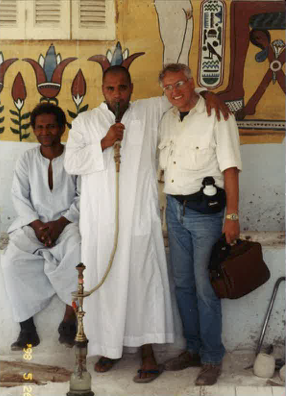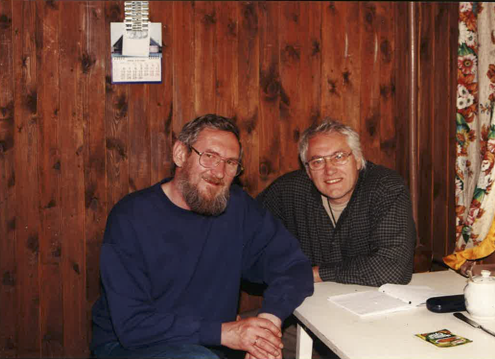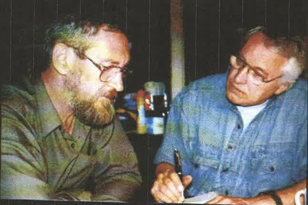International Students
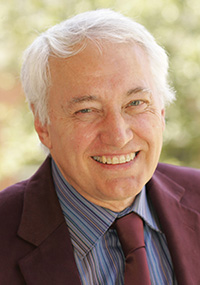
There is no denying when Dr. Albert Pleysier is teaching. His voice echoes out of the classroom and through the halls as he educates his students in a variety of history courses ranging from ancient to the modern day, rapping the whiteboard for emphasis. His passion is undeniable as he weaves the stories of our history in a way that has stopped passersby in their tracks and engaged students for over 40 years. It is no surprise, then, that he tells his own story with the humility and meticulousness of a scholar.
Dr. Pleysier immigrated to the United States from the Netherlands with his family at a young age. His parents placed a high value on education, in turn instilling a dream to be a professor in him when he was only ten years old. It is clear now that Dr. Pleysier achieved that dream, but the road was rarely clear. In addition to the countless hours of hard work invested, Dr. Pleysier credits one major factor in his success: his faith.
“I prayed a lot,” says Dr. Pleysier. The years of his education were filled with moments of difficulty, but also with serendipity that he describes as “certainly divine.” He recounts the process of becoming a doctoral student as a particular example of this. He was overworked and becoming burned out at the teaching job he took after obtaining his master’s degree.
“I remember saying, ‘God, get me out of here,’” he says. After a conversation with his wife, Jane (another of his sources of strength), the two went to the local library. Dr. Pleysier asked the librarian if there was a book about universities in America that might help him find a doctoral program. The librarian said yes, and handed him a book — one that had arrived just days before, as if its delivery was timed just for him. The information within led him to a program at West Virgina University.
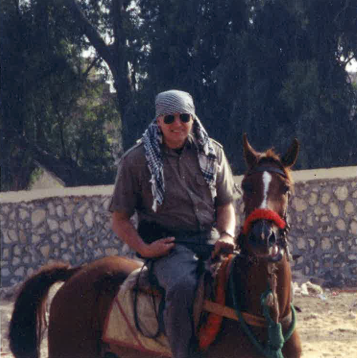
Then, once he earned his PhD and was in need of a new role, he happened across a tiny newspaper advertisement for an institution that was then known as Piedmont College. It might have been strange for a small school several states away to be advertising professor openings, if not for another connection: Piedmont’s then-President was a graduate of WVU.
For as much as his journey to Piedmont relied upon small, seemingly fated moments, his long tenure here is no accident. He cites academic freedom as his primary reason for choosing to teach here over any other institution. He most enjoys teaching courses about some of the more hidden parts of history, the kind of stories most students would not have heard in high school. Classes like Egyptology, History of Women, Constantinople and the Roman Empire, and Hitler’s Germany allow Dr. Pleysier to explore, dissect, and understand parts of our past that so many people do not know. Being a professor at a private university, he says, is the only way he has achieved that for the last 48 years.
“There are so many people in history outside what most learn about,” he says, “and I believe they deserve to be remembered too.”
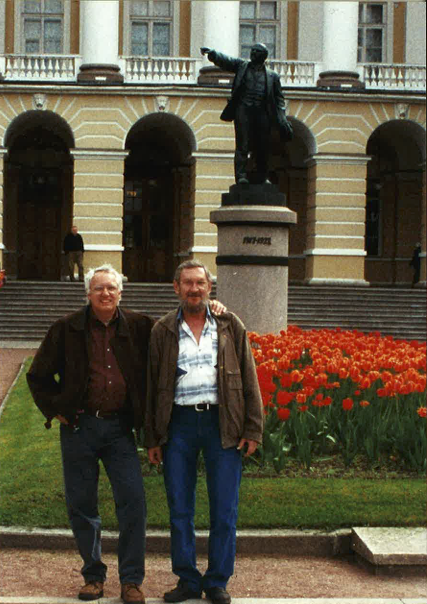
Certainly memorable are some of Dr. Pleysier’s other adventures as a Piedmont professor. Past students have traveled with him abroad to Egypt, Ukraine, Siberia, and more. While his trips included moments of fun (like scaling a pyramid — yes, really!), they also included foundational learning moments for his students. In one instance, his students spent weeks with students from St. Petersburg, getting to know them and their backgrounds while completing archeological work together. The unique artifacts they encountered were exciting, but perhaps more exciting and long-lasting was the empathy formed for their fellow students, a trait Dr. Pleysier hopes his students take from his classes.
Forming empathy and understanding is a core tenet of Dr. Pleysier’s scholarly publications, too. In collaboration with Dr. Alexey Vinogradov, another researcher from Russia, he has published several books like The Women of Izmaelovka and Enemies of the People Under Stalinism, which give voices to individuals whose stories were previously unheard. Through in-depth interviews, the participants were allowed to voice — often for the very first time — their experiences. Dr. Pleysier notes these interactions as particularly impactful to him, and his publications (which include several more books, some written independently) as important to his scholarship and work as a professor.
As the interview with him winds down, Dr. Pleysier reflects on how Piedmont has changed over the course of his time here.
“Physically, the look has changed significantly,” he says, “but the institution has stayed the same.” The same could be said for Dr. Pleysier’s experience: over the years, students cycle in and out, different courses are offered, and colleagues come and go. All the while, one thing remains constant — Dr. Pleysier’s voice, drifting out of the classroom, educating and empathizing generations of students.
For more information about Piedmont University’s history program, click here.
